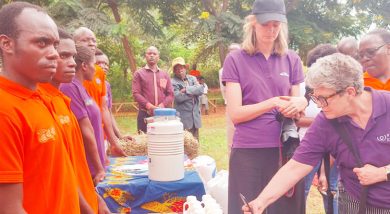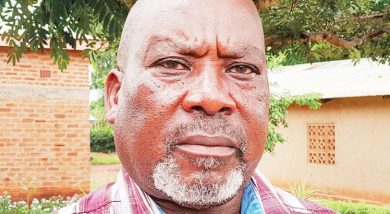611 graduate in adult literacy in Neno
At least 511 women and 100 men graduated in Adult Literacy in Neno on Tuesday as the nation commemorated international day of Adult Literacy.
Speaking during the event which took place at Kammwamba ground in the area of Senior Chief Symon, Minister of Civic Education, Culture and Community Development Cecilia Chazama, expressed the need for more investment in adult literacy to enable more Malawians to benefit.
Chazama said there are a lot of challenges that hamper school going children from attending school, a thing which has made the number of illiterate people in the country to continue to rise.
At least 36 percent of the country’s population (about 4.6 million people) is illiterate, most of them women, according to the National Statistics Office (NSO) 2008 data.

According to Chazama, government with the assistance from its partners such as United Nations Educational, Scientific and Cultural Organization (UNESCO), Community Savings and Investment promotion (Comsip) and World vision is working on establishing more adult literacy leaning centres and supply more books in such centres to improve accessibility.
Chazama said her ministry is also in discussion with partners for financial support so that it increases honoraria for instructors and teachers from K5 000 per month to K15 000 by January 2018 in a bid to motivate them.
Comsip Operations Manager Susan Kondowe highlighted the connection between financial management and adult literacy.
According to Kondowe, literacy is one of the indicators of household improvement and Comsip members are encouraged to attend such schools so that they are able to manage their businesses.
“Our members are involved is various types of businesses and we encourage them to join adult literacy schools. In fact it is one of the key requirements for one to join as Comsip member for we acknowledge that only the literate can manage well their businesses and improve their households,” she said.
In his remarks, Senior Chief Symon said the increase number of graduates highlights underdevelopment in the district.
“This district has been rallying behind in terms of development. Due to inadequate schools, learners are forced to walk long distance and this leads to more school drop outs,” he said.
However, Symon hailed different initiatives carried out in the district particularly by Non Governmental Organisations (NGO) which has made it possible for some people to pick up their pieces and access the services which they missed when they were young.
Neno has a population of about 170 000 people 60 percent of which are women.
Acting Director for Unesco Emmanuel Kondowe, only the educated can positively take part in both social and technological developments.
“We need to invest in adult literacy in order to move together with global trends and encourage children to go to school so that we do not have such a number of illiterate people in the future,” he said.
Malawi introduced literacy education in 1949. Currently, it has about 10 000 adult literacy learning centres 2000 of which priotise English language.
This year, the day was cerebrated world over on September 8 under the theme “Literacy in a digital world.”





